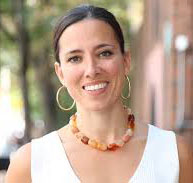December 5, 2019

Last week, I stood in a packed gymnasium at English High School right here in Boston and watched Governor Baker as he signed a nation-leading education funding equity bill into law.
The bill corrects our Commonwealth’s 26-year-old K-12 funding formula, delivering $1.5 billion in state aid primarily to low-income students who have faced drastic underfunding for decades. These are the exact fixes that families, educators, and organizers across the Commonwealth have been fighting for.
Seismic progress like this doesn’t happen by itself and it doesn’t happen overnight. It requires resilient advocacy and courageous commitment from people all across the state. This fight was no different, and it started long before this legislative term began.
Forty-one years ago, in 1978 (the year I was born!), eight-year-old Roburn Webby from Brockton was one of the first to call for reforming our state’s education funding system. She saw that she and her classmates did not have the same opportunities as their peers in other communities. Roburn and her parents joined with 15 other families and stakeholder groups from across the state to sue for every child’s right to a quality education.
The case took 15 years to wend its way through the system — so long that Roburn aged out of the Brockton school system and was succeeded by 13-year-old Jami McDuffy as the lead plaintiff. But at the end of the day, their work led to one of the most important changes to K-12 education in Massachusetts history. In 1993, the Massachusetts Supreme Court ruled that every child had a constitutional right to quality education. The Legislature’s subsequent Education Reform Act that year set a national standard for K-12 funding.
Yet, even as the Massachusetts education system climbed the national rankings, achievement and opportunity gaps persisted — and in some cases grew. So, these same communities continued to champion educational justice, calling for increased investment to make good on our constitutional responsibility. In 2010, these communities were joined by others across the state who were facing growing year over year budget cuts.
They got down to work, making their voices heard in calls, meetings, and long trips back and forth to the State House. Their grit and persistence achieved the rebirth of the Foundation Budget Review Commission, which I co-chaired in 2015 — whose mandate was to recommend updates to the state’s decades’ old formula for K-12 education aid, also known as the “Foundation Budget.”
Still, parents, students, and advocates knew the work was far from over. For the next year, as we on the commission held hearings across the state, communities turned out – sharing stories of damaging budget cuts year after year, and the double bind faced by low-income kids who endure a more difficult road to start with and who receive even less support along the way.
The next year, in October 2015, the commission issued our report with five clear recommendations to update the formula and provide necessary support to close the achievement gap.
Still, we all knew the work was far from over. The recommendations had no force of law, they would make no true impact by themselves. So, these stakeholders and advocates redoubled their efforts again — crafting legislation, organizing demonstrations, attending hearings, calling the State House, meeting with offices again and again. And, more than 40 years after Roburn Webby and her parents first led the charge for equity — these stakeholders filed another lawsuit.
On a cold morning this past January, 13-year-old Chelsea middle schooler José Cruz Jr. came to the State House and echoed these calls for an equal chance in life. He told us about how he and his peers deal with poverty, violence, homelessness, and few employment opportunities — and that he had no one at school to talk with about it.
“So, I ask you,” he said to us. “Do you sincerely expect us to succeed under these circumstances? Are you aware of these issues? Can you do something to help us? Will you help us?”
The law we won last week will finally answer these calls. It includes all five of the Foundation Budget Review Commission’s recommendations, with the full investment prescribed to close opportunity and achievement gaps at scale.
These provisions weren’t politically easy, and getting here was never certain. But we always knew this was the right goal — and a diverse coalition of Democrats, Republicans, teachers’ unions, charter school advocates, parent groups, student organizers, civil rights advocates, business leaders, and local officials all agreed.
Generations of Bay Staters tirelessly and passionately kept this cause alive, never giving up, even when political insiders believed the issue was dead. And now, future generations of Bay Staters will taste the fruit of their efforts: a public education to create the society we want to live in and support every child as they reach for their dreams.
We failed Roburn Webby 40 years ago, and we missed the mark on doing right by Jami McDuffy 26 years ago. But today, finally, this law is getting it right for José Cruz and the decades of Bay Staters who will come after him.
This is what generational progress for educational equity and economic justice looks like. This is what refusing to give up looks like.
I’m profoundly grateful to have had the chance to stand alongside so many of you in this fight. Never doubt that when we organize, we win.
State Sen. Sonia Chang-Diaz represents parts of Dorchester and Mattapan in the Massachusetts State Senate’s Second Suffolk district.

Get the Dorchester Reporter— the paper of record for Boston’s largest and most diverse neighborhood—delivered to your door for just $30 per year.
That's 52 weeks of the Dorchester Reporter delivered by USPS for just $30.
Support our brand of community journalism AND get the print edition delivered to your door each week— the best deal in town!
Click here to submit your order with PayPal:
Or call 617-436-1222.
Topics:


